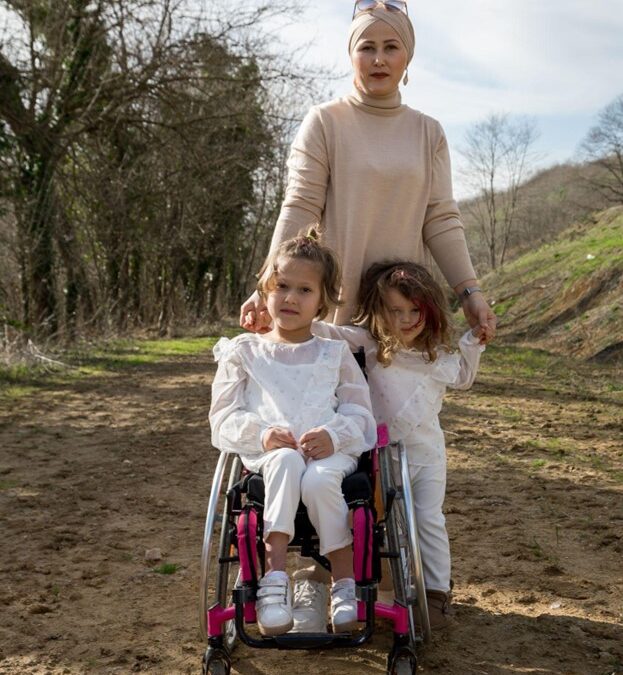Introduction
If you are a parent of a child with a disability, then you know that they can often require additional needs and supports. Children with a disability commonly have different needs and take longer to reach certain milestones than their peers.
While having a child with special needs can be challenging, the National Disability Insurance Scheme (NDIS), introduced nationally in 2016, has helped families with disabled children better access supports. This article will explain how a NDIS disability support worker can help increase your child’s general functioning and independence.

What is a NDIS Disability Support Worker?
A NDIS disability support worker is a person who provides assistance and support to individuals with disabilities. This role can include a wide range of tasks and activities such as assisting with basic self-care (e.g. mobility, personal hygiene, feeding and taking medications), helping with domestic chores, attending various appointments and transport. NDIS disability support workers also promote social and community engagement for clients, so they can meet their community participation goals.
The NDIS allows people with disabilities to find the right services for them, which can include:
- Community support packages (in-home, center-based, and group settings)
- Supported accommodation options like respite care, housing services, or shared living arrangements;
- 24/7 crisis response support service;
- Transport services such as taxis and car hire;
- Education program including assistive technology devices if needed;
Support workers come under the ‘Core Supports’ category of funding. To avail of this funding, NDIS applicants must identify specific goals and demonstrate how a support worker is necessary to improve their general functioning in areas of life affected by their disability. For example, a child confined to a wheelchair due to cerebral palsy may utilise NDIS support workers to help them travel around their community (including school) attend medical and social appointments, and engage in recreational activities. When applying for NDIS funding for support worker services, it is best practice to come prepared with clear goals to be able to justify your application. Support workers have undergone appropriate criminal record checks to be able to work with children.
NDIS disability support workers can provide physical assistance
You can ask your NDIS disability support worker to provide physical assistance, such as:
- Personal care. An NDIS disability support worker may help your child with personal hygiene and dressing, including getting dressed.
- Help with completing transfers for children with physical disabilities.
- Assist with basic cleaning tasks e.g. bedroom or household chores, organising belongings.
- Assisting with meal preparation if appropriate.
- Accompanying them to social events, medical appointments or other tasks in the community.
- Transport needs.
They can cater to your child’s social needs
Heightening a disabled child’s social participation and engagement is a common goal for NDIS participants. A NDIS support worker can help in this regard by assisting your child make friends and keep them engaged with his/her community and social networks. Support workers can take your child to social groups (e.g. play groups), and recreational tasks such as sport or going into the community. NDIS support workers can also be a source of companionship for children, as they can become regular and constant fixtures in the child’s life. Moreover, they can also afford valuable respite for carers and families, to help decrease risk of carer burnout.
They are there for emotional support
A disability support worker can help your child to thrive by providing emotional and mental support. It is not uncommon for a child with a disability to have limited friends or constrained opportunities to engage socially. While parents, carers and family members are integral to the child’s wellbeing, having additional supports outside immediate family and friends can also be beneficial for the child. While they are not formally trained in counselling or therapy, they can act as a valuable companion and advocate for the child.
They can work under the guidance of therapists to meet specific goals
NDIS participants usually have well defined goals and targets, which NDIS support workers can help to achieve. Participants also commonly have NDIS funding for therapists, such as Psychologists, Occupational Therapists (OT) or speech therapists. Support workers can work in conjunction with the child’s therapists to help raise the child’s skills in various aspects of life. For example, a child may engage with an OT to improve their fine and gross motor skills. The OT can outline specific exercises and tasks that the child and their support worker may practice on a daily basis, such as tying shoelaces, using cutlery or playing ball games. This can help propel children’s skills with increased opportunities to practice strategies outlined by therapists.
How NDIS Disability Support Workers Help Children Thrive
Children with disabilities can often benefit from NDIS support workers to help increase their personal and social independence, provide companionship, and be a source of respite for carers. If you have a child with a disability and feel you require extra supports, applying for NDIS funding may be a suitable option.

